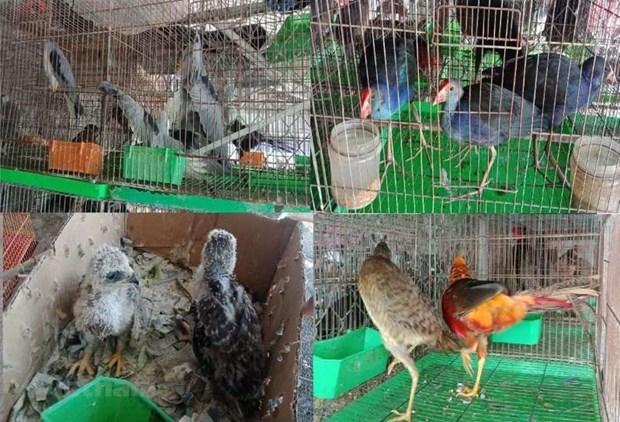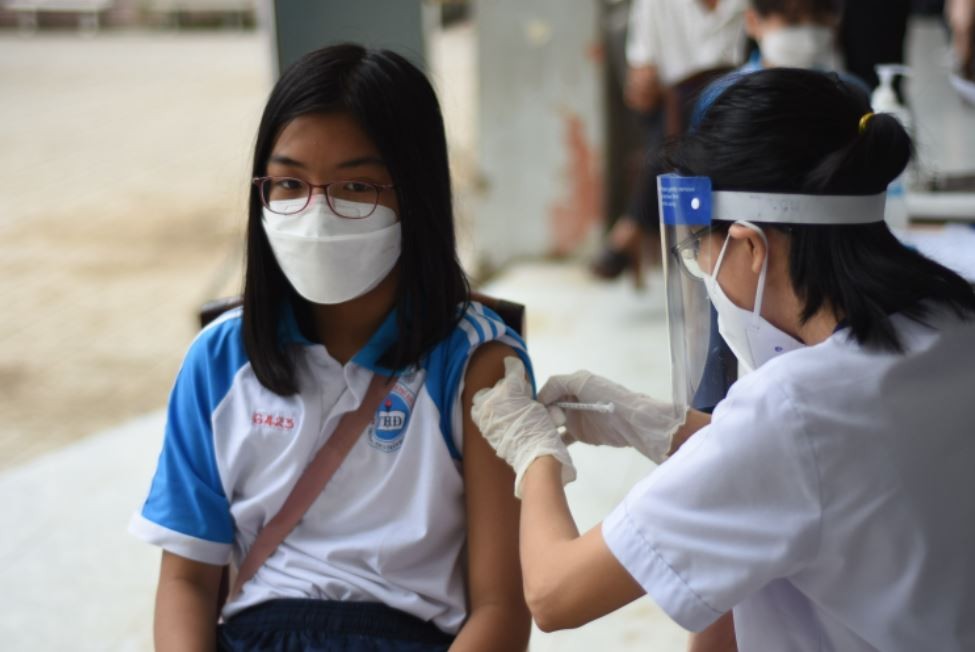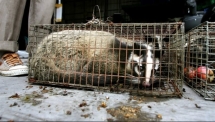MoNRE requests tightened control of wildlife trafficking, consumption
| ‘Animals live for man’: China’s appetite for wildlife likely to survive virus | |
| Valuing Nature in Childhood program for nearly 6000 children in 3 years | |
| Phu Quoc commits to become a Plastic Smart City |
 |
Wild birds sold at a market in the southern province of Long An (Photo: VNA)
The move was made amid complex developments of the 2019 novel coronavirus that causes the acute respiratory disease called COVID-19, which is believed to spread to humans from wild animals.
In its document recently sent to other ministries, ministry-level agencies, Government agencies, and provincial-level People’s Committees, the MoNRE asked them to boost communications to raise public awareness of illegal wildlife hunting, trading, caging and consumption, as well as risks of disease infection posed by the consumption of and contact with wild animals.
It also asked law enforcement bodies like forest protection, market surveillance, customs, border guard and police forces to enhance coordination in restaurant and business examination to prevent wildlife trading in unlicensed markets and strictly deal with violations of relevant regulations.
Besides, ministries, sectors and localities need to instruct wildlife breeding facilities to increase quarantine and sterilisation measures, limit contact with wild animals, and keep in touch with local management agencies to stay updated with disease information, according to the MoNRE.
Meanwhile, many organisations like the World Wide Fund for Nature, Wildlife Conservation Society, Fauna and Flora International, Save Vietnam’s Wildlife and Animals Asia have sent open letters to the Prime Minister of Vietnam to call for the eradication of illegal wildlife trading and consumption.
They pointed out that many epidemics over the last 20 years have connections with virus clusters in wildlife populations.
For example, the severe acute respiratory syndrome (SARS) in late 2002 and early 2003 that infected more than 8,000 people in 37 countries and killed 774 of them, came from a new beta-coronavirus strain that hails from bats and is transmitted via the masked palm civet (Paguma larvata).
Meanwhile, the Middle East respiratory syndrome (MERS) that broke out in 2012, spread to 2,494 people and killed 858 was caused by another coronavirus strain transmitted from camels to humans.
The African swine fever, which recently wreaked havoc on pig farming in China, Vietnam and nine other countries, is believed to come from wild boars in Africa, according to the organisations.
They said the ongoing COVID-19 epidemic will cause considerable impact on Vietnam. Therefore, they called on the Vietnamese Government to take strong and sustainable actions to prevent illegal wildlife trading and consumption to ensure national safety, economic security and public health, as well as to conserve ecosystems./.
 Focus
Focus
Vietnam Covid-19 Updates (May 1): Daily Infections Fall to Nine-month Low of 5,109
 Focus
Focus
Vietnam Covid-19 Updates (April 29): 7,100 Cases, 79,000 Recoveries Reported
Recommended
 National
National
Vietnam News Today (May 31): Vietnam Strongly Supports Laos’s National Development
 National
National
Vietnam News Today (May 30): Vietnam, Venezuela Reinforce Ties Through People-to-people Diplomacy
 National
National
Vietnam News Today (May 29): Vietnam and Hungary to Expand Cooperation into New Areas
 National
National
Vietnam News Today (May 28): Vietnam and China Discuss Strategic Cooperation Orientations
 National
National
Vietnam News Today (May 27): Vietnam Treasures Multifaceted Collaboration with France
 National
National
Vietnam Commits to Building an Inclusive, Sustainable and Cohesive ASEAN
 National
National
Vietnam Proposes Vision for Responsible Digital Journalism Cooperation
 National
National





